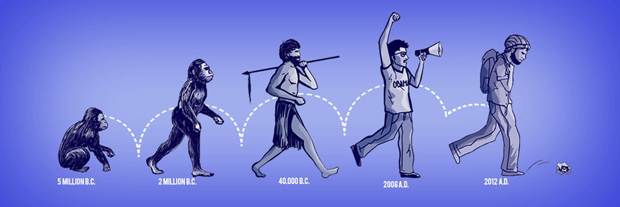
With students’ enthusiasm for voting this November down from four years ago, the CSUN chapter of the California Faculty Association (CFA) is mobilizing to raise awareness about a critical ballot for higher education, said Theresa Montano, Chicano/a studies professor and CFA member.
Proposition 30 is one of the main focuses of the CFA this November, with the CSU-wide group supporting the proposition.
“Public funding has declined consistently, most to a minimal level,” Montano said. “Beyond Proposition 30, this ballot is about sending a message to the wealthy and the state. It’s time for (the wealthy) to pay their fair share and time to reinvest in public education.”
If voters pass Proposition 30, the personal income tax of those making more than $250,000 will increase by 1 to 3 percent based on their income bracket and sales tax will go up one cent for every $4 Californians spend.
The $6 billion the Legislative Analyst’s Office estimates the state would receive in additional tax revenue would go into the K-12 school system and community colleges. It would also see the CSU system avoid a $250 million “trigger cut” in funding.
“Proposition 30 is the difference between a rebate and an increase in tuition for students. If it doesn’t pass, it will devastate our public schools. I’m not sure students are aware,” Montano said.
The CSU board of trustees voted last month to increase tuition another 5 percent if Proposition 30 fails. If it passes, students will receive a rebate on the 9 percent tuition hike from the 2011-12 academic year.
Joining the CFA in support of Proposition 30 is the Students for Quality Education (SQE).
“There hasn’t been a positive proposition (for education) like this before — and if it doesn’t pass, there won’t be one like it again,” said Edgar Ramos, 22, art major and SQE member.
SQE are also trying to spread awareness about Proposition 30 and Proposition 32 around campus, setting up tables where they pass out fliers and educate students about the upcoming ballot.
“Students are not as enthusiastic as four years ago because we’re not electing the first African American president,” Ramos said.
Both Ramos and Montano are confident that students will get more involved as the November election approaches.
“Students made the election in 2008, and I hope they realize how important it is to register and get out to vote,” Montano said.
The argument against Proposition 30 is that the taxes raised on the rich will drive corporations out of the state, thus hurting job creation. The Howard Jarvis Taxpayers Association (HJTA) says that Proposition 30 will hurt college students in the long run by making it harder for them to find jobs.
“When people have jobs, you grow the base of taxpayers, which will bring in more tax money,” Eric Eisenhammer, the director of grassroots operations at HJTA, said.
“We don’t need to raise taxes, we need job creation and real reform,” he said.
Real reform would be to cut wasteful spending and put that saved money into education as opposed to raising taxes for it, Eisenhammer said.
“When we win (with Proposition 30), and I’m confident we will, things won’t get better unless we exercise our vote. That means we hold our elected officials accountable and stay involved when we don’t have an election year,” Montano said.
As the election nears, the CFA will be doing more to educate and register students for the ballot and election, Montano said.
While Montano and Ramos think Proposition 30 is a good thing for education in California, they agree that a hold on tuition hikes for the moment does not erase the past 10 years when CSU students have seen their tuition go from $1,428 to $5,472 a year, according to the CSU website.
“Proposition 30 is not the answer to all of our problems,” Ramos said. “But it is a stepping stone to improving education.”





